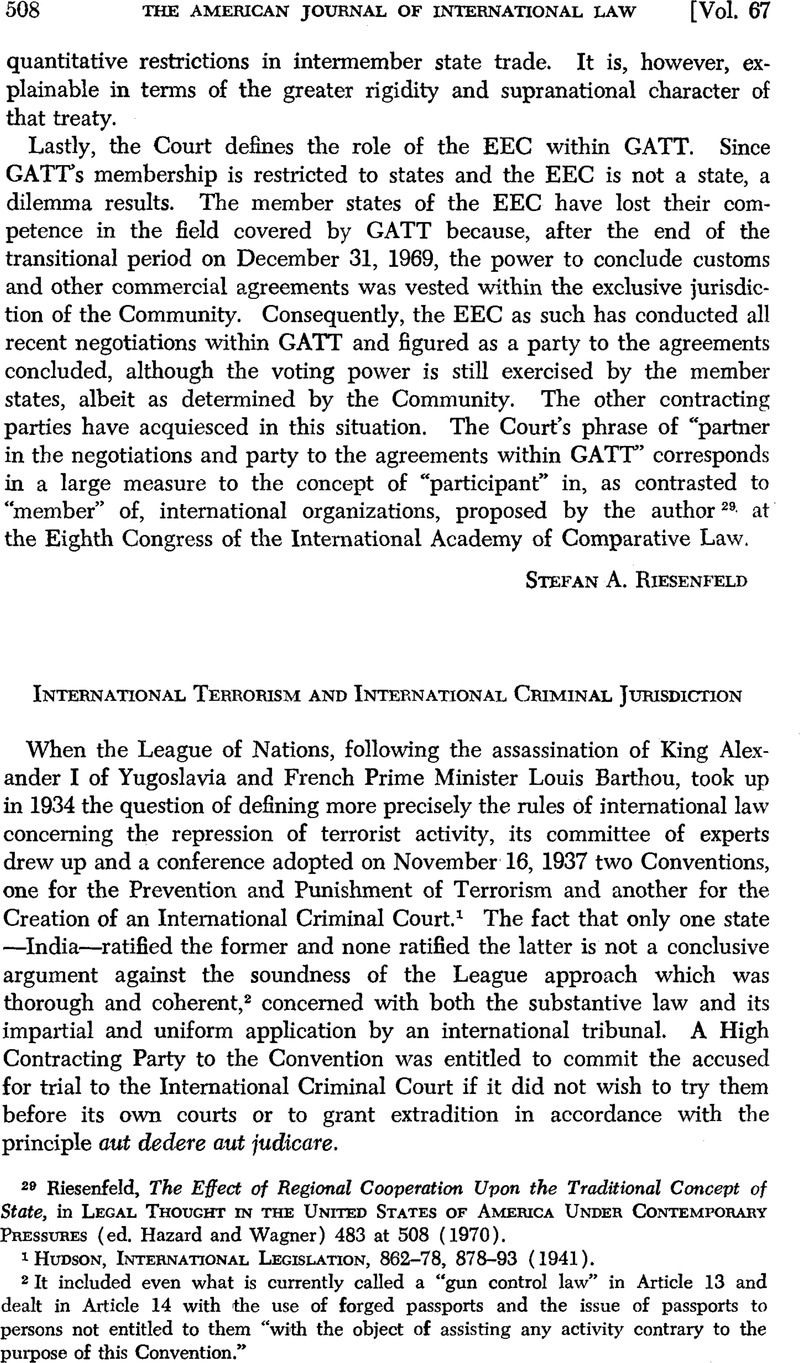Published online by Cambridge University Press: 28 March 2017

1 Hudson, International Legislation, 862–78, 878–93 (1941).
2 It included even what is currently called a “gun control law” in Article 13 and dealt in Article 14 with the use of forged passports and the issue of passports to persons not entitled to them “with the object of assisting any activity contrary to the purpose of this Convention.”
3 ILC: Report covering the work of its 6th Session, 3 June-28 July 1954. GAOR: 9th Sess., Supp. No. 9 (A/2693), 9–12.
4 Report of the 1953 Committee on International Criminal Jurisdiction, 27 July-20 August 1953. GAOR: 9th Sess., STOP. No. 12 (A/2645).
5 Article 2, par. 6 lists among the offences against the peace and security of mankind: “The undertaking or encouragement by the authorities of a state of terrorist activities in another state, or the toleration by the authorities of a state of organized activities calculated to carry out terrorist acts in another state.”
6 GA Res. 1186 (XII) and 1187 (XII), Dec. 11, 1957 and UN Doc. A/7250, Sept. 26, 1968, at 3, par. 10.
7 ILC: Report on the work of its 24th Session. A/8710, at 225, 232–57. 67 AJIL 98 (1973).
8 UN Doc. A/C. 6/L. 850, Sept. 25, 1972.
9 GA Res. 3034 (XXVII), Dec. 18, 1972. It was adopted by a vote of 76 for, 35 against, with 17 abstentions. The resolution, however, reaffirmed the inalienable right to self-determination of all peoples under colonial and racist regimes and condemned “the continuation of repressive and terrorist acts” by such regimes in denying self-determination and independence to such peoples.
10 Rockefeller Foundation Study and Conference Center, Bellagio (Italy).
11 Johnson Conference Center, Racine, Wisconsin.
12 The Serbelloni meeting was attended by three jurists from Bangladesh concerned with the preparation of war crimes trials: Kamal Hossain, Minister for Law and Parliamentary Affairs, Serajul Huq, Chief Counsel, War Crimes Tribunal, and S. R. Pal, Chief Council, War Crimes Tribunal.
13 The drafts have been published with the assistance of the Johnson Foundation under the title: “The Establishment of an International Criminal Court, 1st and 2nd International Criminal Law Conference” (1973). Copies may be obtained from the Johnson Foundation, Racine, Wisconsin 53401.
14 New York Times, Sept. 15, 1970, at 17.